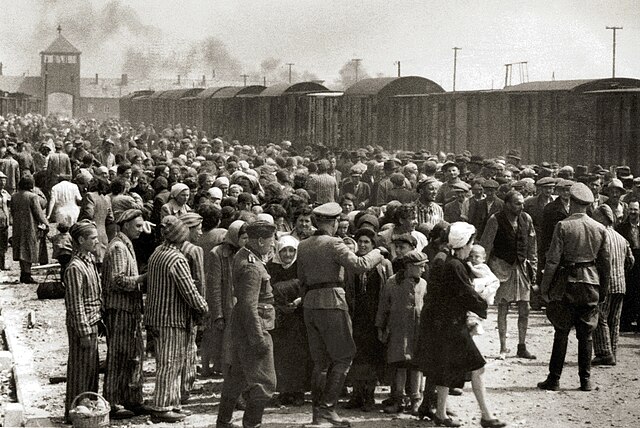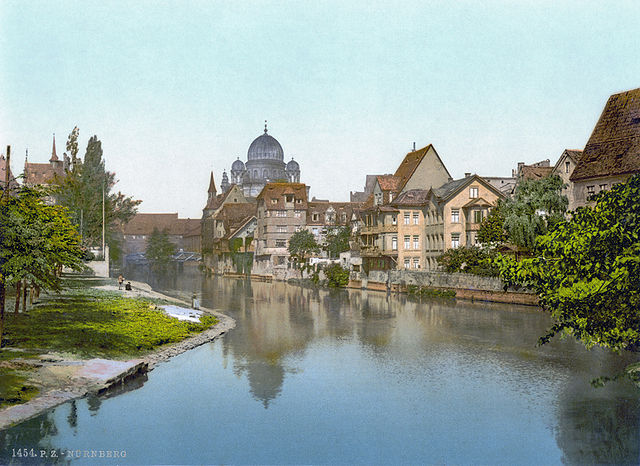Holocaust survivors are people who survived the Holocaust, defined as the persecution and attempted annihilation of the Jews by Nazi Germany and its allies before and during World War II in Europe and North Africa. There is no universally accepted definition of the term, and it has been applied variously to Jews who survived the war in German-occupied Europe or other Axis territories, as well as to those who fled to Allied and neutral countries before or during the war. In some cases, non-Jews who also experienced collective persecution under the Nazi regime are considered Holocaust survivors as well. The definition has evolved over time.
Children at Auschwitz concentration camp at the time of its liberation by Soviet forces
Jewish refugees arriving in London from Nazi Germany and Poland in February 1939
U.S. Army surgeon attends to a survivor in a sub-camp of Buchenwald concentration camp shortly after liberation.
A survivor, reduced by starvation to a living skeleton, photographed after the liberation of Bergen-Belsen by the British
The Holocaust was the genocide of European Jews during World War II. Between 1941 and 1945, Nazi Germany and its collaborators systematically murdered some six million Jews across German-occupied Europe, around two-thirds of Europe's Jewish population. The murders were carried out primarily through mass shootings and poison gas in extermination camps, chiefly Auschwitz-Birkenau, Treblinka, Belzec, Sobibor, and Chełmno in occupied Poland. Separate Nazi persecutions killed a similar or larger number of non-Jewish civilians and POWs; the term Holocaust is sometimes used to refer to the persecution of these other groups.
Jews arriving at Auschwitz II in German-occupied Poland, May 1944. Most were selected to go to the gas chambers.
View of the Pegnitz River (c. 1900) with the Grand Synagogue of Nuremberg, destroyed in 1938 during the November pogroms
1919 Austrian postcard showing a Jew stabbing a German Army soldier in the back
Territorial expansion of Germany from 1933 to 1941








